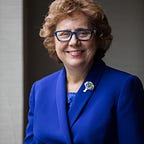I Want To Start a Movement: Knowledge and Speaking For Ourselves
I have to laugh at myself about my early misconceptions related to sex. One of my favorite humorous moments was when I was 10 years old, and a pro-health commercial came on TV. It was suggesting that people should be screened for venereal diseases, what we now refer to as Sexually Transmitted Infections previously known as STD (Diseases). In those days, the word “sex” was not said on TV. I remember asking my grandmother what it was all about, and she said, “those are diseases you get between your legs.” Okay, being the literal child I was, I thought she meant skin on your legs. Not long after, I saw that one of my aunts had a rash on the inside of her leg right above her knee, and it took everything in me not speak up and tell her about the commercial! Imagine what she might have said!
During another time in my childhood, there was a show on TV about pregnancy, and my grandmother once again aided in my education. She said to me, “all your grandfather needed to do was shake his pants out in the room, and I got pregnant.” After that, I began thinking there was something in fabric that came out when you shook it, and you had better be careful to avoid it if you didn’t want a baby! Years would go by — and I mean many years — before I would understand her expression. I was walking down the hall, and there was my husband, changing out of his work clothes…shaking the pants to get the crease right so he could hang them back up.
Looking back, all these moments are amusing now, but in reality, we have not made much progress to improve sex education. We still share and explain very little to our children; many still oppose sex education in schools. I volunteer to work with teens in my spare time, and I am stunned how little they know after having taken reproductive and sexual health classes in school.
In a recent news article, concerns about the sexual misconduct of staff at a local agency similar to ours were raised in great detail. It led our board of directors to question if we were doing enough to prevent the abuse of our clients at KenCrest. Dr. Autumn Miller, Director of Behavioral Health Supports and Services at KenCrest, did a fantastic job of quelling those concerns in straight forward and simple terms. In the field of intellectual disabilities, sex education and support for healthy sexuality is still not part of our everyday work. The reality is, if we want to prevent abuse and promote health, it is time to start talking. Knowledge is power, and speaking for ourselves is essential. Knowledge is power, and having open and honest discussions with our clients about sexual health is essential.
